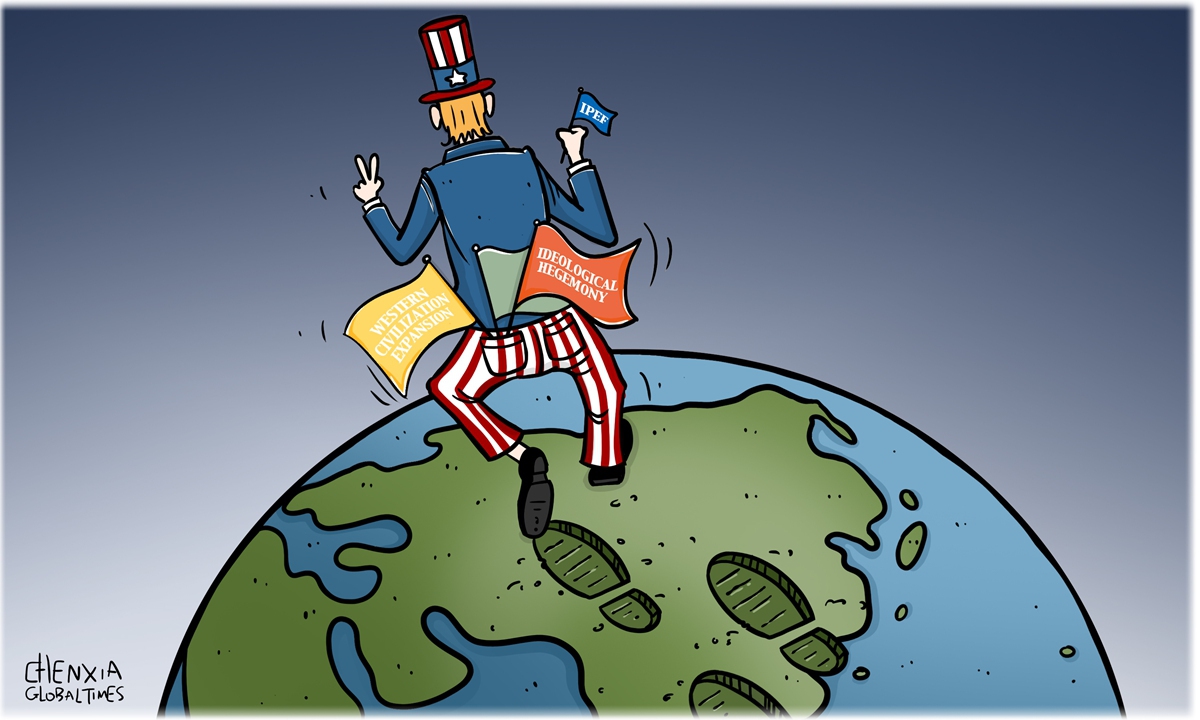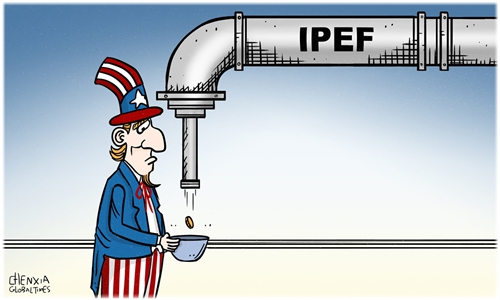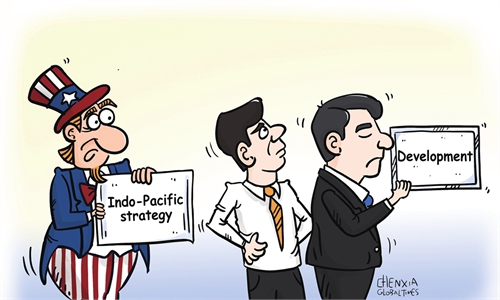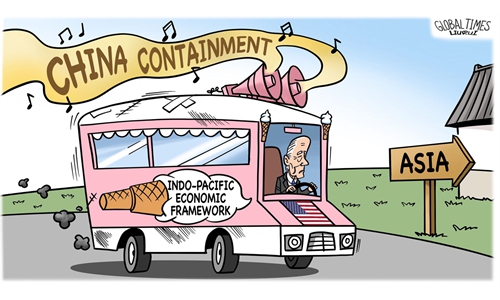
Illustration: Chen Xia/GT
It has been more than two months since the US announced the launch of the Indo-Pacific Economic Framework (IPEF) on May 23 in Tokyo, with 13 founding members.
Despite the US' ambition to shape the region's economic structure, the IPEF failed to answer some of the most critical questions that the pandemic-hit region really cares about.
Can IPEF promote free trade?
A good economic framework should be able to effectively liberalize regional trade and facilitate investment, making it easier for participating countries to do business with each other. However, as the Biden administration claimed, the IPEF is not a free trade deal and there's no market opening or tariff cut under the framework, which is quite frustrating to economies that look forward to greater trade with the largest economy of the world.
Moreover, one objective of kicking off IPEF is to serve the US' interest in countering China's growing influence in the region, which is why China, the largest manufacturer and second-largest economy of the world at the same time, was deliberately left out. With such an objective at its core, it would be hard for participating countries to do business under the US' exclusive rule. After all, it is China, not the US, that is the largest trading partner with almost all the members of IPEF. In 2021, China's trade with IPEF members is more than double than that of the US.
Without measures on promoting free trade, the IPEF seems more like a marketing strategy to hype up the US' presence in Asia, rather than a business framework that benefits its participants. From RCEP to CPTPP, Asia-Pacific countries have worked hard to establish a free trade area in the region. Any initiative that could harm regional integration should be put under the microscope.
Can IPEF bring post-pandemic recovery?
The world economy has been in a turbulent time, with energy, food and supply chain crises troubling many countries. Inflation of many economies has reached new heights in decades, with people's basic living standards at stake. The trade war waged by the US against China a couple of years ago caused serious shocks to both global economy and the US itself. This reminds us all to stay alert to a possible industrial chain breakdown created by renewed attempts at decoupling policies.
Now it is time for countries to remove barriers and work together to build stronger supply chains. The IPEF, however, is nothing more than restructuring the supply chains of regional countries to exclude China, through means such as export controls over high-tech products.
Take the semiconductor industry. The US has been pressuring South Korea to join Chip 4, a US-led chip alliance aimed to crowd China out of the semiconductor industry, putting South Korea in an awkward position. Such an action would seriously damage the country's leading role over the long run by risking major manufacturers being cut off from the biggest market in the world. The possibility of unstable industrial chain caused by IPEF can't be overlooked.
Can IPEF enhance openness and cooperation?
Although the world is still in the shadow of the COVID-19 pandemic, it is safe to say that the future of the world will rely on globalization and inclusive cooperation. The spirit of true multilateralism should be upheld when facing the challenge of climate change, energy crisis and more. Building small cliques won't help countries endure difficult times.
Under such circumstances, the IPEF with its ulterior motives reminds people of Cold-War mindset, an outdated logic that divides the world into confronting groups and forces countries to choose sides. The initiator of IPEF seems to consider the Asia-Pacific region as a geopolitical battlefield, not a land of prosperity. It has to create an enemy so that it feels the right to interfere in regional affairs.
As has been pointed out by analysts, what the four pillars of IPEF really mean is asking the participants to change their laws, regulations or the way of governance, to accommodate to the US' "high-standard commitments," including data flow and anti-corruption drive. This is something that already aroused concern in countries like India which consider data localization a crucial issue and are unlikely to make any concession.
Without any market access of goods, services or facilitation of investment, it is natural to question the IPEF's ability in realizing supply chain resilience in the first place, or whether developing and emerging countries have any merit in participating. The question of whether IPEF will bring local economies closer or break them apart is worth pondering.
The author is an observer on international issues. opinion@globaltimes.com.cn



